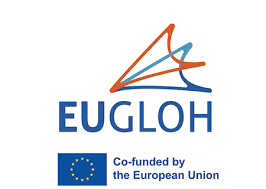EUGLOH Living Lab: Framtidens klasserom / Classroom of the future


NORSK:
Ønsker du å teste ut dine ferdigheter innen tverrfaglig samarbeid, samskaping og bruk av spill som plattform for læring? Da har du muligheten hvis du melder deg på workshoper og webinarer som Universitetet i Porto arrangerer til høsten.
ENGLISH:
Would you like to test your skills in interdisciplinary collaboration, co-creation, and using games as a platform for learning? If so, you have the opportunity to participate in workshops and webinars about these topics, organised by the University of Porto this autumn.
NORSK:
Dato: 1. oktober 2025 - 31. oktober 2025
Sted: Porto, Portugal
Vertsuniversitet: Universitetet i Porto (U.Porto)
Type arrangement / Modus: Hackathon / workshop /webinar (både online og fysisk oppmøte)
Målgrupper: Vitenskapelig ansatte, administrativt ansatte, masterstudenter, bachelorstudenter
Varighet: Opptil 1 måned
Dokumentasjon av deltakelse: Karakterutskrift – 3 ECTS
Språk: Engelsk
Rekruttering av deltakere: Kvalitativ vurdering
Antall ledige plasser: 30
Evalueringskriterier: 50 % - motivasjonsbrev / 50 % - CV
Søknadsfrist: 1. september 2025
EUGLOH Living Lab omfatter en rekke aktiviteter i immersive og eksperimentelle omgivelser, med mål om at deltakere skal kunne utvikle tverrfaglige og multidisiplinære ferdigheter.
Disse "levende laboratoriene" drives av tverrfaglige "kunnskapsskapende team" som står for pedagogisk samskaping innenfor de fire pilarene i Kunnskapstorget — utdanning, forskning, innovasjon og samfunnstjeneste.
Dette initiativet støtter utvidelse, internasjonalisering og modernisering av utdanningsmuligheter som vektlegger innovativ entreprenøriell læring, tverrfaglige og digitale ferdigheter, samt bærekraft i læreplanene.
Aktivitet: "Putting Students First — Designing the Classroom of the Future"
Dette er et innovativt internasjonalt opplæringsprogram som setter studentene i sentrum for utdanningstransformasjon, og kombinerer gamification, velvære og tverrfaglige ferdigheter.
Initiativet er samskapt av tre partneruniversiteter — U.Porto, Université Paris-Saclay og UiT — og følger en hybrid, interaktiv tilnærming basert på reelle utfordringer og tverrfaglig samarbeid.
Programstruktur
Programmet er strukturert rundt tre hovedtemaer:
Gamification of Learning (UiT)
Dette modulen integrerer spillmekanismer i både fysisk undervisning og nettundervisning for å øke studentengasjement. Webinarene gir praktiske eksempler, som bruk av analoge spill støttet av digitale verktøy, og Business Simulator brukt i et økonomikurs, inkludert data fra en studie med 400 deltakere. En kritisk tilnærming til gamification og dens etiske implikasjoner avrunder diskusjonen.
Velvære og lykke (Université Paris-Saclay)
Denne komponenten vektlegger hvilken rolle velvære spiller i bærekraftig læring, for å oppnå framgang i akademia. Den inkluderer webinaret "Learning to Learn", fokusert på personlige strategier og praktiske eksempler, samt en synkron rundebordssamtale med interaktive aktiviteter som fremmer refleksjon og egenomsorg gjennom utdanningsreisen.
Tverrfaglige ferdigheter (U.Porto)
Dette temaet utforsker essensielle ferdigheter som kritisk tenkning, samarbeid, kommunikasjon og ledelse. Tilnærmingen inkluderer webinarer om samskapingsprinsipper og reelle anvendelser av Tverrfaglige Ferdigheter-rammeverket, med fokus på profesjonell utvikling i tverrfaglige kontekster.
Treningsfaser
Nettundervisning: Korte webinarer (maks. 10 min) med praktisk fokus og synkrone rundebordssamtaler med interaktive øvelser.
Fysisk undervisning (27.–31. oktober @U.Porto): Lagarbeid på reelle utfordringer, støttet av ekspertmentorer.
Kontinuerlig vurdering: Analyse av gjennomførbarhet og innvirkning av forslagene, med selvrefleksjon på utviklede ferdigheter.
Hvem som kan søke:
Studenter, vitenskapelig ansatte og administrativt ansatte fra alle fagområder og utdanningsnivåer. Aktiviteten er sertifisert med 3 ECTS og fremmer en transformativ, student-sentrert læringsopplevelse basert på innovasjon, velvære og samfunnsansvar.
Innhold og metodikk
Metodikk:
Den pedagogiske tilnærmingen følger utfordringsbasert læring i et hackathon-format. Studentene vil bli presentert for et spesifikt problem, foreslått av institusjoner eller selskaper, og vil bli bedt om å designe et forskningsbasert prosjekt.
Arbeidet vil bli utført i tverrfaglige lag. Den nettbaserte komponenten støttes av en Discord-server, brukt til kursstruktur og for å lette samarbeid.
Vurdering:

ENGLISH:
Date: 1 Oct 2025 00:00 - 31 Oct 2025 12:00
Location: Porto, Portugal
Host university: University of Porto (UPorto)
Type of event / Mode: Hackathon / workshop / webinar (both online and in-person attendance)
Target groups: Academic Staff, Administrative Staff, Master students, Undergraduate students
Duration: Up to 1 month in length
Recognition: Transcript of records - 3 ECTS
Language: English
Recruitment of participants: Qualitative Assessment
Number of open spots: 30
Evaluation criteria: 50% - Motivation Letter 50% - Curriculum Analysis
Application deadline: 1 September 2025
The EUGLOH Living Lab encompasses a series of activities conducted in immersive and experimental settings, aimed at fostering transversal and multidisciplinary competencies. These “living laboratories” are driven by multidisciplinary “knowledge-creating teams” responsible for pedagogical co-creation across the four pillars of the Knowledge Square — Education, Research, Innovation, and Service to Society.
This initiative supports the broadening, internationalising and modernising of educational opportunities, embedding innovative entrepreneurial learning, transversal and digital skills, and sustainability into curricula.
The activity “Putting Students First — Designing the Classroom of the Future” is an innovative international training programme that places students at the heart of educational transformation, combining gamification, well-being, and transversal competencies.
This initiative is co-developed by three partner universities — U.Porto, Université Paris-Saclay, and UiT — and proposes a hybrid, interactive approach rooted in real-world challenges and multidisciplinary collaboration.
The programme is structured around three main thematic pillars:
Gamification of Learning (UiT)
This module integrates game mechanics into both in-person and online teaching to boost student engagement. The webinars present hands-on examples, such as the use of analogue games supported by digital tools, and the Business Simulator applied in an economics course, including data from a study involving 400 participants. A critical perspective on gamification and its ethical implications rounds out the discussion.
Well-Being and Happiness (Université Paris-Saclay)
This component reflects on the role of well-being in academic success and sustainable learning. It includes the webinar “Learning to Learn”, focused on personal strategies and practical examples, and a synchronous roundtable featuring interactive activities that promote reflection and self-care throughout the educational journey.
Transversal Competencies (U.Porto)
This pillar explores essential competencies such as critical thinking, collaboration, communication, and leadership. The approach includes webinars on co-design principles and real-world applications of the Transversal Competencies Framework, with a focus on professional development in interdisciplinary contexts.
The training unfolds in three phases:
Open to students, academic staff, and non-academic staff from all fields and levels of study, this activity is certified with 3 ECTS and fosters a transformative, student-centred learning experience grounded in innovation, well-being, and social responsibility.
Content and methodology
Content
Methodology
The pedagogical approach will follow challenge-based learning, in a hackathon-style format. Students will be presented with a specific problem, proposed by institutions or companies, and will be tasked with designing a research-based project.
This work will be carried out in interdisciplinary teams. The online component will be supported by a Discord server, used for course structure and to facilitate teamwork.
Assessment is continuous, formative, and based on practical evidence, including:
Active participation in online and in-person activities (20%)
– Attendance, collaboration, and engagement in debates and interactive sessions.
Teamwork: development of an educational innovation project (50%)
– Technical, creative, and communicative quality of the final proposal (prototype or implementation plan).
Final project presentation and pitch to a jury (20%)
– Clarity of communication, audience relevance, and potential impact.
Individual written reflection (10%)
– Critical self-assessment on the learning experience, skill development, and potential future applications.
